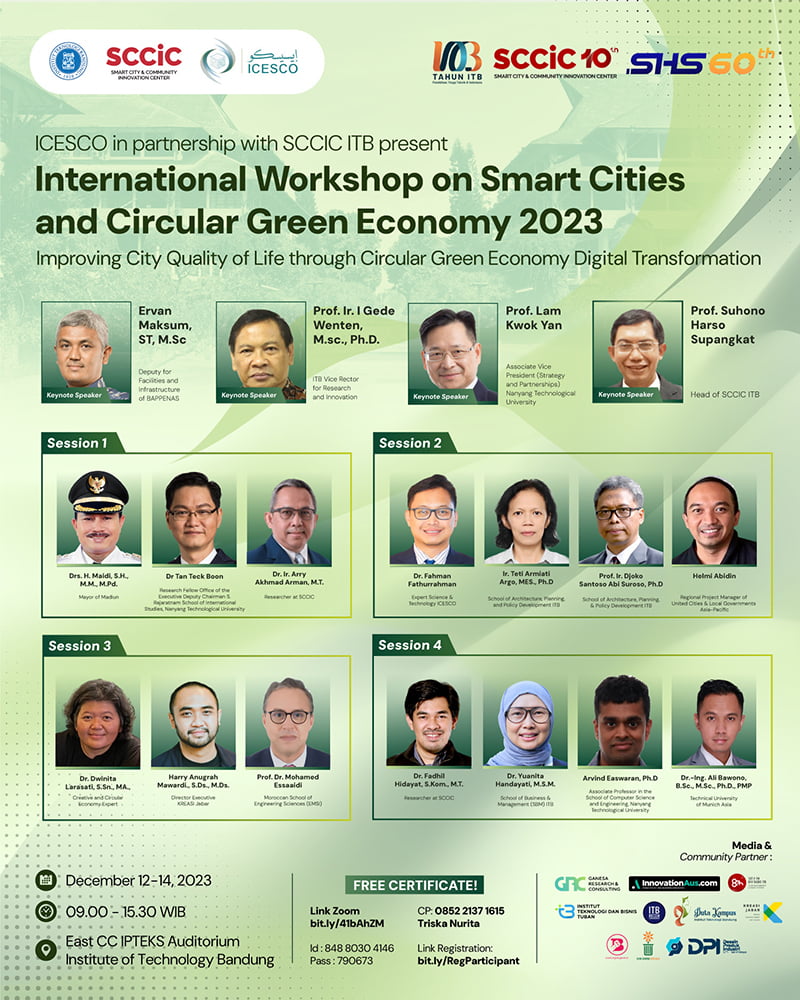Rising urban populations inevitably lead to increased waste production, exploitation of natural resources and reduced quality of life.
Proponents of smart cities say the answer lies in the circular economy.
Dating from the 1960s, the circular economy was proposed to organise the economy as a circular system to ensure sustainable development. This framework was formalised a few decades later to base itself on the three Rs principle of reduction, re-use and recycle.
Smart economies use technology to improve efficiencies, reduce waste and create a more sustainable future. Circular economies focus on keeping resources in use for as long as possible, and technology is essential for achieving this goal.
In fact, studies suggest that the concepts of the circular economy and green economy share the same principle: which is to “adapt to or transform the current economy towards a more sustainable one”.
These objectives form the basis for the International Workshop for Smart Cities and Circular Green Economy 2023, which will take place online and in person at the Bandung Institute of Technology in Indonesia, from Tuesday to Thursday, 12-14 December.

The desired outcomes of the event are spurred by: population growth and increasingly complex urban problems; the need for innovation in solving city problems and maximising city potential; implementation of smart cities that have been carried out in Indonesia; evaluation needs and directions for smart-city implementation; and joint learning to solve city problems and maximise city potential.
Presented by the Smart Cities and Communities Innovation Centre (PIKKC) of the Bandung Institute of Technology (ITB) and the Islamic World Educational, Scientific and Cultural Organisation (ICESCO), the main theme is ‘improving the quality of life of cities through the digital transformation of the circular green economy’.
Overall, the three-day workshop highlights the importance of collaboration between cities, academia and the private sector with the key impetus of sustainability and the circular green economy.
The opening panel discussion is “Smart City Policy, Circular Economy Green Policy, Smart Cities Governance”, emphasising good practices at the local, national and international levels regarding smart city policies, green circular economy policies and smart city governance.
The second session will explore the topic of “Sustainability Framework, Green Economy and Climate Change Community Resilience”. It will examine sustainability policy frameworks, the threat of climate change to cities, the development of green economies and sound practices on the international stage.
The third session, “Design Innovation and Circular Economy”, will review the development of circular economy movements and advances in Indonesia (which is the fourth most populous country in the world), starting from grassroots initiatives.
On the second day, the fourth session will focus on “Technological Innovation, Smart and Circular Economy”, and the use of technology and AI to improve efficiencies, reduce waste and create a sustainable future for cities. As such, the circular economy is closely aligned with optimising natural resources for long-term use.
The keynote speech will be delivered by the Chairman of PIKKC ITB, Prof. Suhono Harso Supangkat, M.Eng. Indonesian and international dignitaries in the fields of planning, policy development, business, science, architecture, engineering, computer science, and more, will speak offline and online at the event.
A field visit will be conducted on the third day to survey the area that is a pilot project for digital transformation activities in the city of Bandung. The quota is limited. For more information, please contact the ICESCO PC (+6281324974281).
The entire event series is free and open to the public. Participant registration can be done through this link.
This article was produced by InnovationAus.com in partnership with PIKKC ITB and ICESCO.
Do you know more? Contact James Riley via Email.
